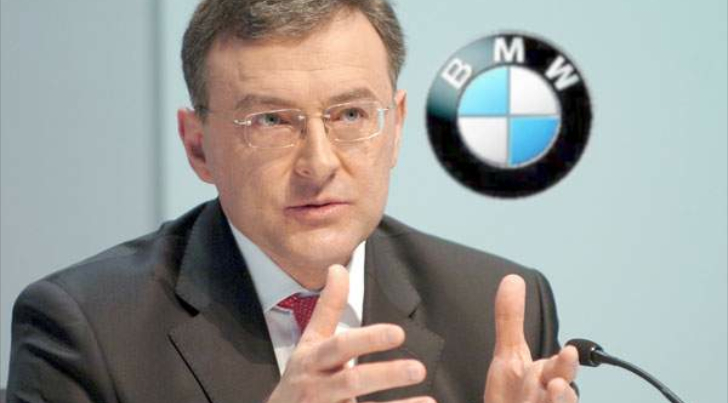The fact that the CO2 emission standards are getting lower and lower each year should be a reason to rejoice for all of us, considering they are in place to help us save the planet. However, that’s just in theory, in reality, the challenges these regulations pose for auto makers are straining an already declining sector.
In a recent interview for Automobilswoche, BMW’s CEO, Dr. Norbert Reithofer said that the company he’s running sees the investments needed to meet the demands in the billions. That’s right, billions.
So far, the Germans managed to bring their CO2 emissions average down to 133 grams per kilometer. It’s one of the best scores in the world but for those additional 33 grams that have to be dealt with in the next 5 years, the spending will be incredibly high.
“The last 33 grams will be the most expensive. The figure of 100g/km of CO2 corresponds to an average fleet consumption of about 4 liters per 100 kilometers. We are not talking about sums in the three-figure millions of euros. We’re talking about billions,” he said.
In the case of BMW, the money is available or it will be available in the near future. The company already announced that it wants to cut back on costs on every level, including salaries and research and development. However, others are not as lucky.
The problem is, such legislation forces companies like BMW to enter new niches and segments to widen the variety of cars they sell. That means they enter new markets where they weren’t involved so far, forcing other manufacturers to adjust their offerings as well.
For example, the Munich-based company is launching more and more front-wheel-drive cars is smaller segments, cutting in where companies like Peugeot or Renault used to be the reigning kings. That could be problematic for the French companies that are already facing troubling financial issues.
Dr. Reithofer also confirmed that the European market is no longer a priority for the company, BMW preferring to sell one fewer car in Europe and one more in China today.
With $2 Billion invested in new plants on the North American continent, it’s pretty obvious that the myth of ‘German built cars’ is about to come to an end. Furthermore, BMW is not the only company that is taking these steps, Mercedes-Benz and Volkswagen joining in with their own plants being built in other areas of the world.
How will that affect us and how will ‘German’ cars be seen in the future? It’s hard to tell but a big part will be played by the marketing teams that will have to learn how to convince people that even though their vehicle is made in Mexico, it still offers the same quality as the one built in Munich. Will it be so? Considering what we’ve seen in the past, it’s highly unlikely that the end consumer will notice any difference between cars built on different continents. The focus on saving money is pretty obvious though.
So far, the Germans managed to bring their CO2 emissions average down to 133 grams per kilometer. It’s one of the best scores in the world but for those additional 33 grams that have to be dealt with in the next 5 years, the spending will be incredibly high.
“The last 33 grams will be the most expensive. The figure of 100g/km of CO2 corresponds to an average fleet consumption of about 4 liters per 100 kilometers. We are not talking about sums in the three-figure millions of euros. We’re talking about billions,” he said.
In the case of BMW, the money is available or it will be available in the near future. The company already announced that it wants to cut back on costs on every level, including salaries and research and development. However, others are not as lucky.
The problem is, such legislation forces companies like BMW to enter new niches and segments to widen the variety of cars they sell. That means they enter new markets where they weren’t involved so far, forcing other manufacturers to adjust their offerings as well.
For example, the Munich-based company is launching more and more front-wheel-drive cars is smaller segments, cutting in where companies like Peugeot or Renault used to be the reigning kings. That could be problematic for the French companies that are already facing troubling financial issues.
Dr. Reithofer also confirmed that the European market is no longer a priority for the company, BMW preferring to sell one fewer car in Europe and one more in China today.
With $2 Billion invested in new plants on the North American continent, it’s pretty obvious that the myth of ‘German built cars’ is about to come to an end. Furthermore, BMW is not the only company that is taking these steps, Mercedes-Benz and Volkswagen joining in with their own plants being built in other areas of the world.
How will that affect us and how will ‘German’ cars be seen in the future? It’s hard to tell but a big part will be played by the marketing teams that will have to learn how to convince people that even though their vehicle is made in Mexico, it still offers the same quality as the one built in Munich. Will it be so? Considering what we’ve seen in the past, it’s highly unlikely that the end consumer will notice any difference between cars built on different continents. The focus on saving money is pretty obvious though.
